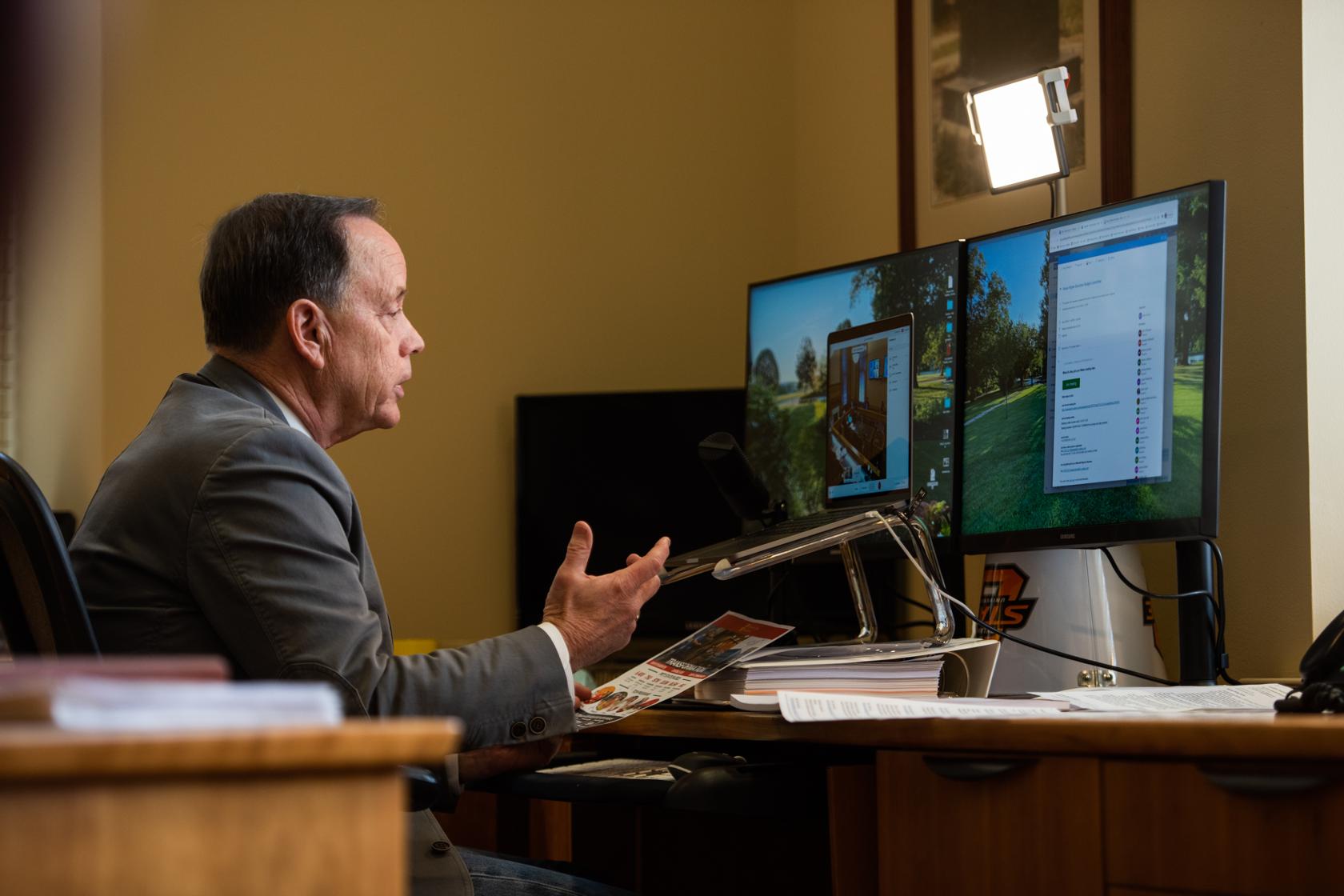PSU president to legislators: “Higher education is an investment”
Wednesday, February 10, 2021 4:00 PM
People and Society, News
Pittsburg, KS

Advocacy in Topeka has long been one of President Steve Scott’s roles as Pittsburg State University’s top administrator, but his virtual testimony to both the Senate Ways and Means Higher Education Subcommittee and the House Higher Education Budget Committee this week took on a new urgency.
The university’s state funding this year is $1.5 million below 2008 funding levels, and Gov. Laura Kelly has proposed an additional $2 million cut to PSU’s budget for FY22.
A 3.7 percent enrollment decline in the past few years has PSU carefully managing resources. In the last four and a half years, Scott noted, the university has reduced employees by 128, including 51 faculty positions, and has eliminated 52 majors, minors, and certificates over the past decade.
“We have always had a balanced budget; we don't spend more than we take in,” he said.
The impact
At the same time, Scott told the committees, the university has never wavered from its mission to provide transformational experiences for students and the community. PSU continues to implement innovative, cutting edge programming — programs like polymer research and a new two-year plastics engineering technology degree.
The university also has never wavered from playing a vital role in driving the region’s economy and meeting workforce demands.
“Ten percent of our students are nursing majors and 8 percent are construction majors,” Scott testified. “We are doing great work in pre-med with a very high placement, and we have a very substantial and robust teacher education program and business school.”
“When you think about our students coming to our campus...the purpose of all of this is to have them find financial security for their families, become great citizens, and really contribute to the state and to the country.”
Scott pointed to data that shows the value that comes from getting a degree: college graduates earn on average $1 million more than high school graduates over their lifetimes; pay an average of $200,000 more in property, sales, and income tax; and are healthier, more engaged, involved citizens.
At least half of PSU’s graduates stay in the state after graduation with an average starting salary of $50,000 in high-need industries; their careers have been among those most “pandemic proof.”
“Being involved in the local economy and helping to drive it is absolutely at the core of what we do,” Scott said. “It’s in our mission statement.”
Private support
Scott praised donors and private support within the community, without which the university wouldn’t be able to fund $7 million in scholarships nor fund a $6 million renovation to the building that houses the Irene Ransom Bradley School of Nursing, as just two examples.
Grant funding from state and federal agencies also has helped, and Scott credited U.S. Sen. Jerry Moran as having been invaluable in that regard.
Staying open
Scott also provided legislators a snapshot of the university’s efforts during the pandemic, including opening on time and maintaining more than 50 percent of its classes in face-to-face format to meet the needs of students, particularly in majors that require hands-on lab work.
He also pointed to 660 jobs supported during the pandemic through the Kansas Small Business Development Center, administered by PSU and housed in Block22 in downtown Pittsburg.
“Our faculty have done a remarkable job of adjusting instruction, responding to individual student needs,” Scott said. “We’ve checked out laptops and expanded our wi-fi to parking lots. We’ve done rigorous testing, we preserved athletics and other activities, and we conducted seven walk-through commencement ceremonies because that was important to our students and their families.”
Scott told both committees that if the state is to tackle goals like the Kansas Framework for Growth, it will take all six higher education institutions to make it happen, yet proposed funding levels don’t match up.
As the session moves forward, university officials will continue to interact with key legislators, making a strong case for investing in Pittsburg State, its programs, and its people. University officials also will keep the campus and community informed through virtual town halls that may be watched at pittstate.tv. Past town halls are archived at that site and can be viewed at any time.